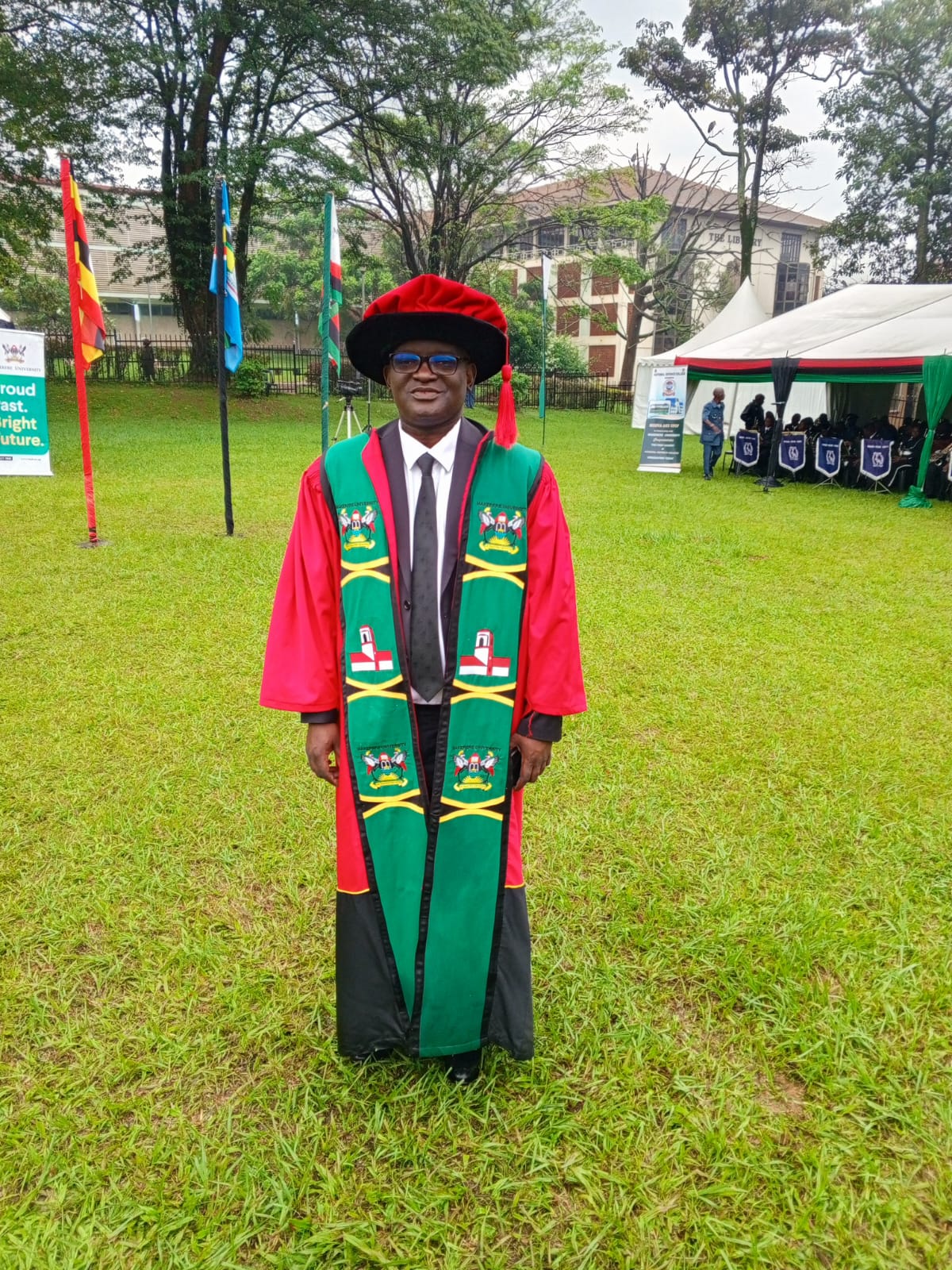Makerere, Uganda – A Doctoral study at Makerere University has suggested an alternative to petroleum/ diesel alternative energy, following a rigorous study.
The study by Dr. Timothy Tibesigwa titled “Techno-economic Assessment of the Viability of B10 Biodiesel Blend for Uganda’s Downstream Petroleum Sub-sector,” has earned him a doctoral award and could have potential positive implications for the petroleum sector in Uganda.
The study, conducted at an international standard, examined the potential of B10 biodiesel blends produced from second-generation feedstocks as substitutes for petroleum diesel.
Defining B10 Biodiesel Blend
B10 Biodiesel Blend refers to a biodiesel mixture containing 10% biodiesel and 90% conventional petroleum diesel.
In this specific case, the “B10” designation signifies that the biodiesel blend consists of 10% biodiesel, typically derived from renewable sources and 90% traditional petroleum-based diesel.
Biodiesel is a renewable fuel made from organic materials, often derived from plant oils or animal fats. B10 is part of a broader range of biodiesel blends that vary in their biodiesel content, such as B5 (5% biodiesel, 95% petroleum diesel), B20 (20% biodiesel, 80% petroleum diesel), and so on.
These blends once adopted have the potential of compatibility with existing diesel engines and the entire infrastructure. They are potentially viable because they incorporate a percentage of cleaner-burning biodiesel, which is considered more environmentally friendly than conventional diesel.
Exploring Sustainable Alternatives
Dr. Tibesigwa’s research assessed the techno-viability of Biodiesel B10 blends derived from second-generation feedstocks, including Castor (Ricinus Communis), Croton Megalocarpus, and Jatropha. These elements are known to be better alternatives to traditional petroleum diesel because they aim to address environmental concerns and promote sustainable energy solutions in Uganda’s downstream petroleum sub-sector.
The findings from this study unveiled the potential B10 biodiesel blend as a substitute for petroleum diesel in Internal Combustion Engines.
The study show also revealed reductions in global warming, human toxicity potentials, and other environmental impacts by up to 7%, affirming its environmental competitiveness compared to petroleum-diesel.
Despite the existing economic challenge, these findings align with Uganda’s Biofuels Act, which advocates for mandatory petroleum-biofuel blending.
Implications and Recommendations
Tibesigwa’s study holds significant implications for Uganda’s energy sector.
The findings suggest that embracing B10 biodiesel blends could contribute to the reduction of carbon emissions in the transportation sector.
The research proposes a synergy between e-mobility and B10 usage as a strategic approach to decarbonize transportation in Uganda.
His study was supervised by Dr. Peter Olupo and Dr. John Kirabira, both experts in the field.
Dr. Tibesigwa’s commitment to the research was underscored by the fact that the study was self-sponsored, reflecting his dedication to advancing knowledge and contributing to sustainable solutions in Uganda’s energy landscape.
His study further signifies a notable contribution to the growing body of research in the field of sustainable energy solutions, especially in the context of Uganda’s downstream petroleum sub-sector.


















